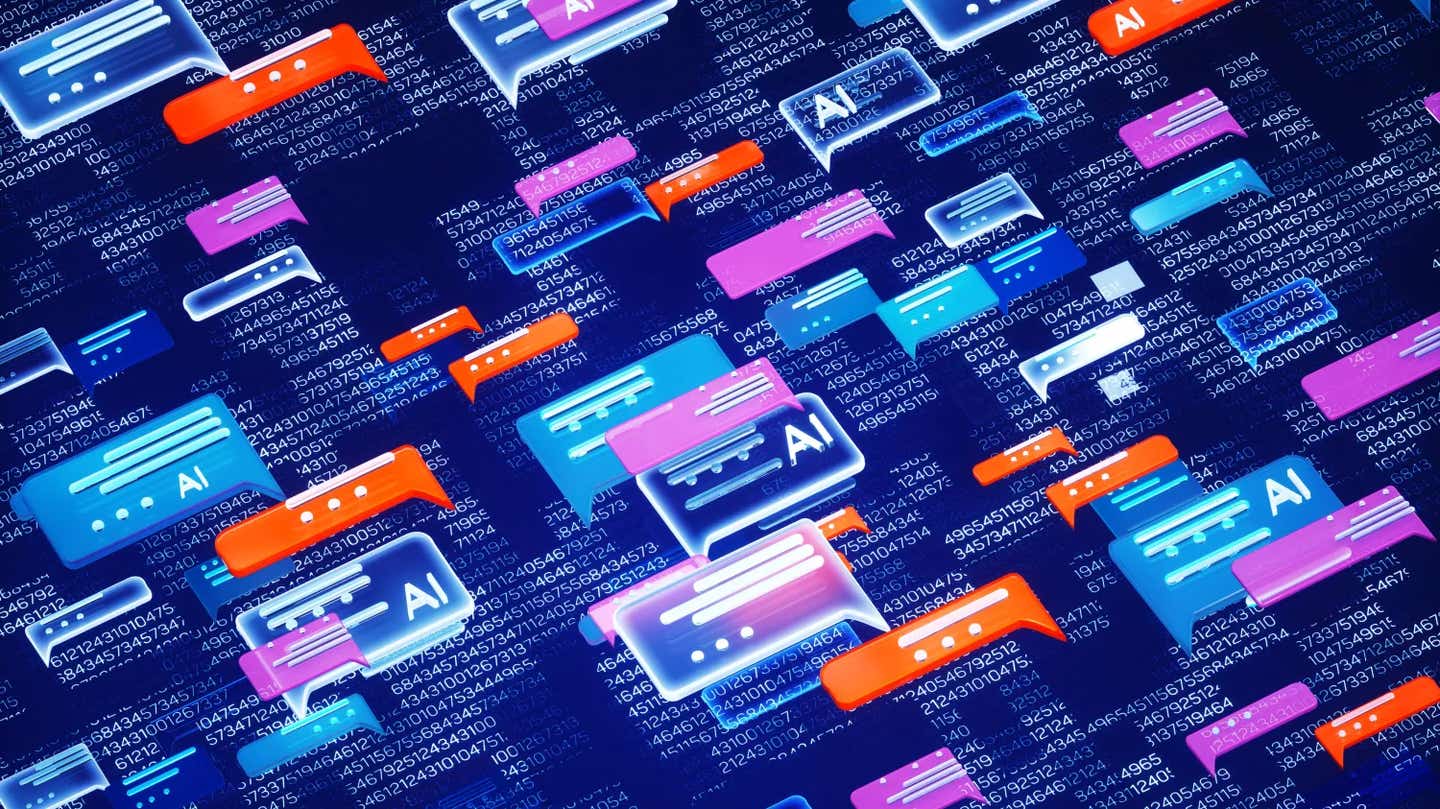The rise of the intention economy: How AI is shaping your future
AI is no longer just responding to you—it’s learning to shape what you want. Welcome to the intention economy.

AI tools are shaping the intention economy by predicting and selling your future choices—before you make them. (CREDIT: Getty Images)
The online world is changing fast. Every time you talk to a chatbot or click around a website, you leave a trail of clues. These clues can show what you might want next—even before you know it yourself. Some of the biggest tech companies are now trying to collect and sell these clues, turning your future thoughts into a new kind of profit.
This idea has a name: the intention economy.
From Attention to Intention
For years, companies made money by fighting for your attention. Every scroll, swipe, and click helped them figure out what held your focus. This created what experts call the attention economy. It changed everything from how news spreads to the way people shop.
But now, researchers say the internet is moving beyond that. Instead of just grabbing your attention, companies want to know what you're planning. Not just what you want, but what you're about to want. They want to understand and even shape your decisions before you make them.
According to Dr. Jonnie Penn from the University of Cambridge, “For decades, attention has been the currency of the internet… Unless regulated, the intention economy will treat your motivations as the new currency.”
A New Type of Persuasion
At the center of this shift are large language models, or LLMs. These are the brains behind chatbots and digital assistants. They’re trained on huge amounts of information and can sound very human. You’ve probably already chatted with one, whether through customer service or a virtual tutor.
These AI systems don’t just understand language. They study how you speak, what you ask, and even how you respond to flattery. By doing this, they can guess what you’re thinking. And with more conversations, they get even better at knowing what you want—or what you might want soon.
Related Stories
Dr. Yaqub Chaudhary, also from Cambridge, explained why this is powerful. “What people say when conversing, how they say it, and the type of inferences that can be made in real-time as a result, are far more intimate than just records of online interactions.”
This means your chats with AI agents could soon reveal more about your hopes, moods, and choices than even your social media profiles or browsing history.
Selling Desires Before They're Fully Formed
Imagine an AI assistant that senses when you’re feeling tired or stressed. It might suggest a movie night and even offer to buy the tickets. That’s not far off. In fact, tech companies are already building systems to do exactly that.
The plan is to sell these early signs of desire to advertisers in real-time. That way, companies can show you offers or messages that seem perfectly timed. All of this could happen before you’ve even made up your mind.
The team at Cambridge’s Leverhulme Centre for the Future of Intelligence warns that this creates a new kind of marketplace—one where your intentions are the product.
Dr. Penn said, “We should start to consider the likely impact such a marketplace would have on human aspirations, including free and fair elections, a free press, and fair market competition, before we become victims of its unintended consequences.”
And the danger is real. If political groups buy access to this data, they could shape your views. If companies use it to sell products, you might buy things you hadn’t even considered on your own.
Signs the Shift Has Already Begun
This isn't just an idea in some far-off future. There are already clues that the intention economy is starting to take shape.
OpenAI, the company behind ChatGPT, recently called for “data that expresses human intention… across any language, topic, and format.” Shopify, a major e-commerce platform, has spoken of using AI to “explicitly get the user’s intent.” Meta, Apple, and Nvidia have all made similar moves.
Back in 2021, Meta released a dataset called “Intentonomy” to help machines better understand what people plan to do. Apple’s newer development tools now include features that try to predict what actions you might take next and suggest helpful apps based on those guesses.
Even AI agents like Meta’s CICERO, which played the game Diplomacy at a human level, use persuasive language and strategy based on reading intentions. If an AI can succeed in a game by predicting and shaping choices, it can also do that in real life.
As Dr. Chaudhary said, “These companies already sell our attention. To get the commercial edge, the logical next step is to use the technology they are clearly developing to forecast our intentions, and sell our desires before we have even fully comprehended what they are.”
The Risks of Trusting AI Too Much
Part of what makes this so powerful is the way these AI tools build trust. The more natural they sound, the more users treat them like friends or advisors. This comfort can make it easy to open up about personal feelings, future plans, and deep desires.
Once this information is out there, it becomes part of the data stream companies analyze. Researchers warn that this could lead to manipulation on a scale never seen before.
“This AI will combine knowledge of our online habits with an uncanny ability to attune to us,” researchers wrote. It can mimic the way people talk and even shape the conversation to make us feel safe. But that friendliness might be hiding another purpose: selling your next decision.
Dr. Chaudhary added, “Tremendous resources are being expended to position AI assistants in every area of life, which should raise the question of whose interests and purposes these so-called assistants are designed to serve.”
Profiling to the Next Level
What makes this system so advanced is the way it can personalize everything. AI can learn your speech patterns, political views, favorite words, and even how much you like praise. With this knowledge, it creates profiles so detailed they feel like a mirror image of your thinking.
These profiles help companies bid for your choices. Let’s say you’re searching online and mention feeling stressed. The AI might suggest a spa visit or a shopping deal. Behind the scenes, different businesses compete to be the one you see first.
Even something small, like how fast you reply or which words you use, becomes part of your profile. Researchers describe this as the attention economy “plotted in time.” It shows not just what holds your focus, but where that focus might lead.
The Fight to Shape the Future
Right now, the intention economy is still growing. But the signs are clear: tech companies are preparing to shape and sell human motivation. If left unchecked, this could reshape the internet, business, and even democracy itself.
Researchers stress that this future isn’t set in stone. With the right rules and awareness, society can guide how these systems work.
Dr. Penn believes public understanding is key. “Public awareness of what is coming is the key to ensuring we don’t go down the wrong path,” he said.
Knowing how your data is used—and what that use means—might be the most important choice you make in the digital age.
Note: The article above provided above by The Brighter Side of News.
Like these kind of feel good stories? Get The Brighter Side of News' newsletter.
Mac Oliveau
Science & Technology Writer | AI and Robotics Reporter
Mac Oliveau is a Los Angeles–based science and technology journalist for The Brighter Side of News, an online publication focused on uplifting, transformative stories from around the globe. Passionate about spotlighting groundbreaking discoveries and innovations, Mac covers a broad spectrum of topics—from medical breakthroughs and artificial intelligence to green tech and archeology. With a talent for making complex science clear and compelling, they connect readers to the advancements shaping a brighter, more hopeful future.



